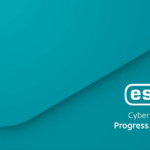
When a crisis happens, clear communication with everyone involved becomes very important. Stakeholders, including employees, clients, partners, and the public, all need to know what’s going on.
People working in crisis management and emergency response know that speaking openly and clearly helps keep trust and calm during tough times.
Being Honest and Transparent:
During a crisis, it’s best to share information honestly. Trying to hide problems or delay news can make things worse. When stakeholders receive truthful updates, they feel respected and more willing to cooperate. Transparency builds confidence even when the situation is difficult.
Using Simple and Clear Language:
In stressful moments, complicated words or technical terms can confuse people. Using simple language helps everyone understand the message. Clear communication reduces rumors and misunderstandings, which can add to the stress during a crisis.
Sharing Information Regularly:
Regular updates keep stakeholders informed and prevent uncertainty. Even if there isn’t new information, telling people that the situation is being handled helps them feel connected. Scheduled communication times also give people a sense of stability.
Listening to Concerns:
Communication should not only be one way. Listening to the worries and questions of stakeholders shows that their voices matter. It helps leaders know what issues need attention and allows them to respond better. Open channels for feedback build stronger relationships.
Choosing the Right Channels:
Different groups may prefer different ways of receiving information. Some might like emails, while others prefer phone calls or social media. Using the right communication channels helps reach everyone quickly and effectively during a crisis.
Assigning Clear Roles:
Having clear roles about who communicates what prevents mixed messages. When everyone knows their part, information flows smoothly. This avoids confusion and keeps communication focused on what matters most.
Being Calm and Positive:
A calm tone in communication helps reduce panic. While it’s important to acknowledge challenges, sharing hopeful messages supports morale. Positive communication encourages teamwork and resilience in difficult times.
Reviewing and Improving Communication:
After the crisis, looking back at how communication went helps find what worked and what could be better. These lessons help prepare for future situations and improve overall communication skills.
Effective communication during a crisis is more than just sharing facts. It’s about building trust and keeping everyone informed and involved. Strong communication is key to managing any difficult situation successfully.




